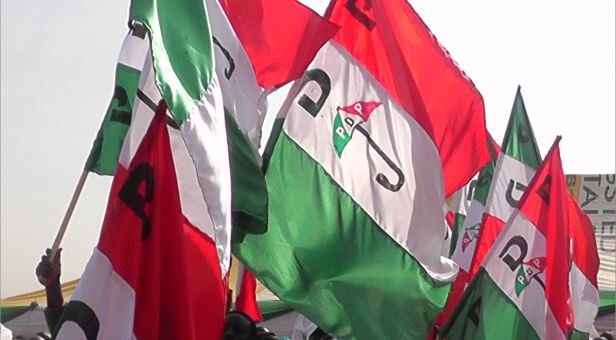Breaking News
EFCC Will Arraign Former PDP Chairman And His Son Over Their Involvement In The Arms Procurement Scandal

The Economic and Financial Crimes Commission will this week arraign a former Chairman of the Peoples Democratic Party, Haliru Mohammed, and his son, Abbah, before a Federal High Court in Abuja on four counts of money laundering involving about N300m, which he allegedly collected from the Office of the National Security Adviser.
The firm, Bam Properties, through which both Bello, who is also a former Minister of Defence, and his son allegedly collected the money from the Office of the NSA, is also one the three accused in the charge FHC/ABJ/CR/389/2015.
The accused are to be arraigned before Justice Ahmed Mohammed, who is currently serving as a vacation judge in the Abuja division of the court.
The accused allegedly received the money from the office of the former National Security Adviser on March 17, 2015 for political campaign but which was purportedly meant for “Safe Houses.”
The prosecution stated in the first count that the N300m collected by the accused was part of proceeds of Dasuki’s unlawful activity.
Dasuki and many others are already being prosecuted before two judges of the Federal Capital Territory High Court in relation to diversion of the sum of N45bn meant for the procurement of arms.
The prosecution alleged in the second count that the accused received the money under the guise that it was meant for “Safe Houses” but was actually released to them for political campaign.
Counts one and two are said to be offences contrary to Section 15 (2) (d) of the Money Laundering (Prohibition) Act 2011 as amended in 2012 and punishable under section 15 (3) of the same Act.
In count three, the accused allegedly concealed the money in their Sterling Bank Plc. account when they “knew Doctor Aliru Bello and Col. Mohammed Sambo Dasuki (retd.) to be engaged in a criminal conduct.”
The offence is said to be contrary to Section 17 (a) of the Money Laundering (Prohibition) Act 2011 as amended in 2012 and punishable under section 17 (b) of the same Act.




